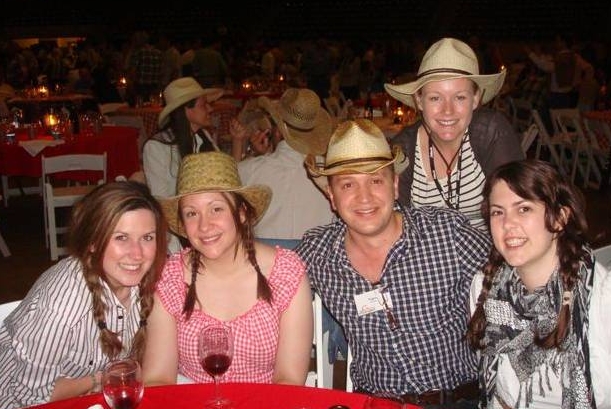Poultry CRC supported Postgraduate Student (USyd) Mr Tugrul Durali attended the Alltech 27th International Health and Nutrition Industry Symposium at Lexington, Kentucky (US) in May 2011. While there he also participated in a Fieldale Farms broiler farm visit to see chemical free broiler production on a vegetarian diet, following this with University of Georgia Poultry Diagnostic & Research Centre presentations about poultry production in the US. “This was a great opportunity to see antibiotic free broiler production farms in the US and to make contact with a number of poultry scientists working in similar areas of research to me” said Mr Durali.
Mr Durali explains, “Free range broiler production is really in its infancy in Australia however production is increasing rapidly due to consumer demand. To see how antibiotic free production is comparing to conventional production was a highlight of this experience”. The Alltech symposium was centred on antibiotic free production with alternative products and management systems. “Being able to participate in this symposium was a big opportunity to understand the challenges faced in these types of production systems. Speaking with attending poultry scientists, veterinarian, nutritionist and producers from all over the world to discuss solutions to these challenges was really very exciting”.
Alltech’s Technical Manager, Dr Andreas Kocher, organized the site visit to Fieldale Farms, a contracted broiler farm. “This opportunity gave me a better understanding of the direct effects of management strategies on broiler intestinal health; and being able to see different production systems on another continent was very enlightening” said Mr Durali.
This enthusiasm was carried onto the following visit to University of Georgia’s Poultry Research & Diagnostic Centre. Here Mr Durali attended presentations by Molecular Bacteriologist Professor Margie Lee’s and Clinical Avian Expert Associate Professor Stephen Collett. Professor Lee focussed on differences between Australian and US broiler production systems. “A well known fact is that most US poultry producers do not clean out sheds for every batch. Their management system allows them to reuse litter” said Mr Durali. A/Professor Stephen Collett then spoke on intestinal health of broilers, particularly relating to micro-flora. “I understand now more than ever how important retro peristalsis, retention time and bacterial community are, as is the need for correct microbial profiling (using 16S rRNA method)”.
The challenge remains to be able to pull antibiotic growth promoters out of poultry feed without damage to the intestinal micro-flora community and without creating welfare problems for the birds. Mr Durali believes improving the understanding of intestinal micro-flora and that community’s relationship with the immune system are key areas to focus upon. “I strongly believe that antibiotics are not the right instrument for protection and growth. We must be well aware of possible misuse and unforeseeable problems in future”.
“The market we have in Australia is rapidly changing as a result of consumers demands relating to animal welfare and/or antibiotic free production. I strongly believe with support from industry and the Poultry CRC I will deliver useable research on antibiotic free production for Australia, and help industry to implement this system as it becomes more commonplace”.
“This trip has changed my perspective, future destination and research career” said Mr Durali. “I gratefully acknowledged the support from Professor Mingan Choct, Dr Andreas Kocher and my supervisors, who all willingly took on additional duties to allow me to gain this experience”.


